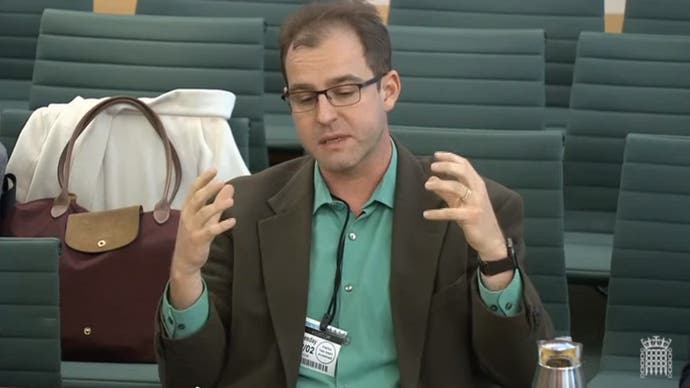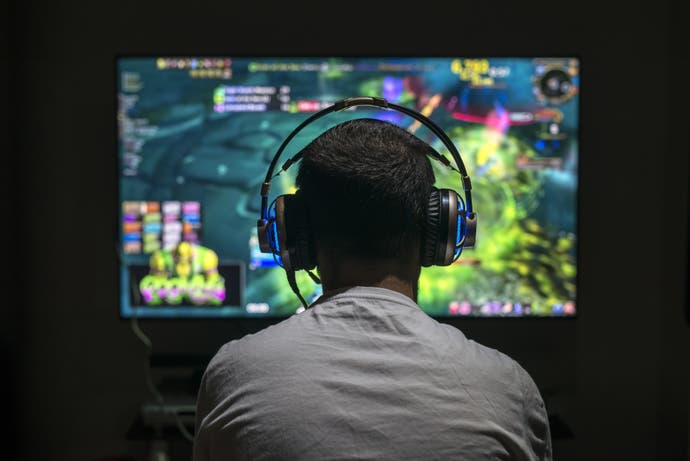Game companies should share data on loot boxes, academics tell Parliament
"We're scrabbling around in the dark here... they have flashlights."
Remember the Parliamentary inquiry on immersive and addictive technologies that opened last month? Well, things are moving quickly, and the Digital, Culture, Media and Sport Committee has already hosted three oral evidence sessions featuring a variety of gambling and technology experts.
Last Wednesday's session focused on topics relating to game addiction and addictive mechanics in video games, such as the dreaded loot box. I watched the session in its entirety, and found the witnesses made a number of fascinating comments regarding game addiction and gambling mechanics in games. Among these include calls for the games industry to be more open with their data, and collaborate with researchers to ensure studies and regulations are fair.
A recurring theme throughout the session was that there simply isn't enough research on video game addiction and addictive mechanics, and this is partly due to the lack of data available to researchers. As highlighted by Dr. David Zendle (York St. John University), there are actually only seven studies on the effect of loot boxes using empirical data, and he is the lead author of four of them.
The experts emphasised the need for "longitudinal studies" (repeated observations of subjects over time) rather than correlational studies, which tend to be less accurate as they rely on "second hand" evidence: ie. for subjects to accurately own up to their bad habits. These also cannot chart development, making it more difficult for researchers to discover the causes of a particular phenomenon.
According to the witnesses, the situation would be vastly improved if game companies were to share their data with researchers and academics, which would provide access to objective data.
"I don't have access to the kind of databanks game companies have," Dr. Zendle said. "If you had access to that kind of data, or the industry was willing to work in a cooperative way with researchers, we'd very quickly be able to clear up many of the most important issues with loot boxes."
"We're scrabbling around in the dark here, lighting little candles around us - they've got flashlights."
This sentiment was echoed by Dr. Daria Kuss, from Nottingham Trent University.
"Objective data is what we need over the long term, with the kinds of numbers that give us an indication about where the problems lie and what we can do in order to solve them in the future," she said.

On the topic of why the industry has so far been reluctant to work with researchers, Dr. Zendle said this could be explained by previous moral panics surrounding violence in video games.
"At the moment tech companies are very defensive, and I think the reason they're very defensive is they're coming off the end of 20 to 30 years of people prodding them about violence.
"The research base for that, it turns out, has not been fantastic... the predicted effects of violence in games have failed to transpire in many important ways, and I think the industry in general has developed a way of dealing with academia which is very adversarial... and designed to protect them against that.
"Because of that we often feel a general unwillingness from the industry to talk to us."
But the witnesses argued both players and the games industry would actually benefit from engaging with researchers. On the topic of reducing harms caused by addictive elements of video games, Dr. Bowden-Jones (director of the National Problem Gambling Clinic) said it could "literally take 18 months" to bring about effective change if "the most prominent and powerful gaming industry people" were to be invited onto a board.
"If anyone from the game industry is watching now, I would say lots of harm reduction in gambling works because people out there are talking to researchers," said Dr. Zendle. "The best way to protect consumers and potentially also protect your profits as well is to talk to researchers and regulators and engage in a communal discussion of what can best be done, rather than stop that discussion from happening out of perhaps a fear that something huge will be done.
"Come talk to us."
The witnesses stopped short, however, of suggesting the games industry should actively fund any new studies, instead arguing the research must be independent.
"The research world is very particular, rightly so, about the provenance of the funds," Dr. Bowden-Jones explained to the committee. "That would be declared on the front page of any piece or publication, and that in itself would immediately colour the decision."

The immersive and addictive technologies inquiry is certainly provoking some fascinating discussions, and it's promising to see government tackle the issues raised by modern technologies. Further studies into the effects of loot boxes and game addiction would only be a positive, but whether the games industry will opt to help remains uncertain.
If you're interested in keeping tabs on the inquiry, you can watch today's session (focused on personal addiction experiences) here, and keep an eye on upcoming sessions via the inquiry's home page. Numerous organisations have also submitted written evidence, which can be viewed by the public if you're up for a bit of light reading.
Or, if you want a more active role, you can still submit written evidence to be considered by the committee.









